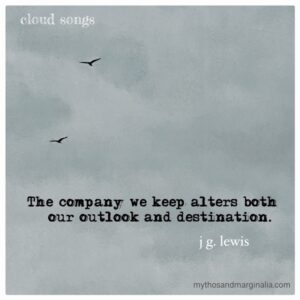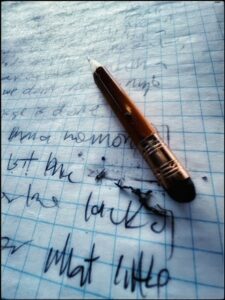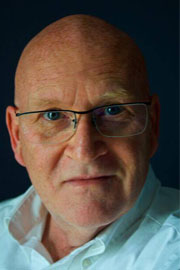
Afternoon by Dorothy Parker
It’s not what you read, but what you see, that goes to the core of what you will believe.
I once read a quote where an eight-year-old described poetry as something “where they don’t use all the page” Over the past couple of days I’ve read quote upon quote, a few poetic philosophies, and an inane pseudo-essay including obviously misunderstood academic terms, explaining what poetry really means.
Nothing I have read is as accurate as the child’s description.
Poetry does, undeniably, require space to breathe on the page. Sometimes, when properly done, only a few words are required to present the poet’s wit, wisdom, or worth. Although it is not simple, poetry is involved and too many people are determined to make it complicated.
Truly, poetry is more than words on a page. The craft, art, and undertaking of poetry goes beyond language, and it does so with more accuracy than any other written form.
If words were simply words; love songs would sound like streetcar alerts, love letters would be as romantic as minutes from a board meeting, and a poem would read like ingredients on a cereal box.
Words, indeed, have a meaning (some words have more than one) but even the description of a word does not define the meaning of a poem. Each word has an essence, and a backbone, with sentiment, soul, emotion, and memory stuffed inside. A poem takes these words and gives them space to resonate.
Poetry can heal or poetry can hurt. We read the words and we respond.
Yet, there are people who look distractingly deeper at poetry and, most times, complicate the process. They study the metrics of the meter, confuse the cadence, look for implied imagery, and search for the metaphor instead of the meaning.
This practice shows little regard for the poet who has already taken sufficient time to work through the mechanics of language and the moral or message, taking into account catastrophe, context, and heartbreak, stanza size and line break, and the politics of the atmosphere.
By the time a poem is presented, the poet has already struggled with the format, whether it is an orderly sonnet or set out in a measured stanza. Even free-form involves an acceptable purpose.
Over and above the poet’s intentions, a poem speaks for itself. It just happens.
Poetry does not take words at face value, yet it does not beg for description, interpretation, or even attention. All it asks for is endeavored understanding.
Your understanding may not, or will not, be the same as the writer, or that of the person sitting beside you on the bus, or another soul halfway around the world.
That’s good. It’s more than good, it is right. Everything else on the planet is so set in its way (even as we evolve or disintegrate), that so much seems too consistent. Except poetry.
Poetry needs to be consistently unpredictable so that we can receive it in the mood or the moment. It should be comforting to know there are words waiting that will accept the way you see them, or feel them, or believe them.
As soon as you have to study a poem it becomes a chore instead of a charm. There is no is no risk/benefit analysis required of poetry, don’t go looking for it.
I read a lot of poetry; far more than I write. Each year I take a volume of a celebrated, “classic” dead poet and, for the entire year, devour the work one poem per day (and some days even more). Last year it was Wordsworth, this year Emily Dickinson.
I’ll absorb, I will react, I will reread and recite, but I dare not call it study. If I call it anything, it is appreciation; and it may not even be that. And my reading is not limited to only those volumes, nor is it limited to treasured bards of years gone by. I’m still cherishing the recent work of a woman who is very much alive, and there is always a book of a recent, or lesser known, poet in my day bag. It might even sound corny, but I breathe poetry. Inhale and exhale. It’s just what I do.
I’d encourage you to do the same. Armed with a poem, you’ll be better equipped to take on the world. By avoiding the news (fake or foolhardy) for 10 minutes a day, or stealing a few moments away from text books, bible study, or gossip pages on your mobile device, you will better understand the human condition.
Try it. A poem a day, every day. There’s even an app for that and it’s free, functional, and quite enjoyable.
Just read it. Leave the analysis to sales reports, tax returns, and political maneuvering, and instead be moved by the writing. Words are important.
Poetry matters; let it speak to you, and for you.
Tomorrow is World Poetry Day
Take a poem to lunch
© 2018 j.g.lewis
Related





